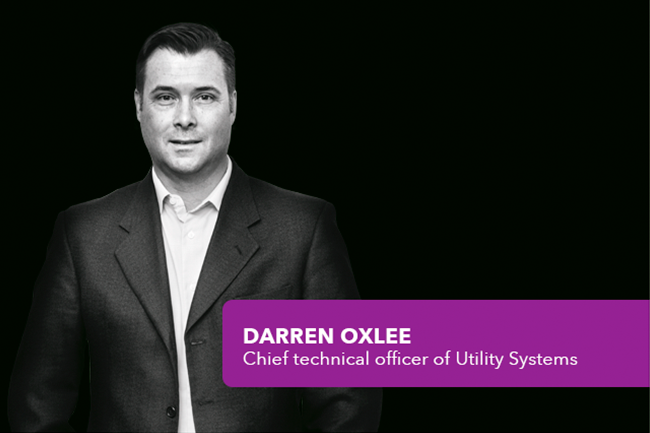The smart-water management industry is in an odd space right now. While the local municipal water supply is still controlled by rudimentary pipes and mechanical valves at one end, at the other end there are now highly complex smart-metering systems – like those developed and supplied by Utility Systems – that enable municipalities to monitor and manage that water supply from miles away.
‘It’s a complete game-changer,’ says Utility Systems chief technical officer (CTO) Darren Oxlee. ‘And it was unimaginable a decade ago.’ In the water space, smart metering allows resource managers to go from having a water-meter reading once a month, to being able to access near-real-time data. ‘That on its own is a massive shift,’ says Oxlee. ‘A very simple example is a meter that we recently deployed into a house that had a leak. The homeowner had been paying a monthly ZAR1 000 bill. By installing a smart meter, within a day we realised there was a leak, and within a week he had fixed it. He saved himself about ZAR500 a month.’
It’s a small example, says Oxlee, but it’s hugely significant if you scale it out. And from the perspective of municipalities and bulk water suppliers, the smart-metering revolution will have a profound impact on how water is managed in the future. ‘It’s an incredible space to be in,’ he says.
Smart-metering technologies fall under the broad umbrella of the internet of things (IoT), where everyday devices are interconnected and enabled to send and receive data. When it comes to water management in the IoT space, one of the key differentiators is power.
‘We’re battery operated, so we don’t have the luxury of throwing a GSM module into each of our devices,’ says Oxlee. ‘Technologies around the LPWAN [low-power wide-area network] space – things like LoRa, SigFox and RPMA – are fundamental to what we’re doing. So staying abreast of technologies and making sure that your development cycle is geared towards what’s required in the future is important but it’s also balanced against what our customers can consume. At this point, the technology is ahead of where our customers are able to consume it, but in the future I expect that we will be fully connected bi-directly, giving our clients the ability to remotely control, manage and administer our devices.’
Oxlee believes that Utility Systems is uniquely positioned to impact the use of water in the future – both in South Africa and across the world. ‘We have great aspirations to be a global business,’ he says. ‘The thought of being able to control and remotely manage a water meter from literally anywhere in the world is unbelievably exciting.
‘We have a huge commercial opportunity, and also an ethical role to play in the future management of water. I find that tremendously exciting and motivating.’
As CTO, Oxlee leads a team comprising engineers, project management, software development, and admin staff.
‘My philosophy around building teams – especially in a technical space – is to employ people who are far better at what they do than you could ever be,’ he says. ‘One of the real strengths of our team is that we’ve managed to bring together a wide range of technical skills, in a manner that everyone has a voice.
‘When we make decisions around our technologies, we make them collectively, and we understand that we’re collectively responsible for those decisions.’
Utility Systems operates in an environment of rapidly changing technologies. Their systems are powered by big data, cloud computing and IoT – all of which are developing and evolving by the minute. ‘Innovation is critical,’ says Oxlee. ‘It’s what keeps technical people hungry and excited. No one likes working on old systems forever. There are two sides to what we do here: there’s the maintenance side; and then there’s the R&D side, where we look at future technologies, evaluate them, pilot them if we can, and figure out where we’re going to be. Those decisions will impact the next four or five years of the business, so it’s important that we get those right.’
While the technological innovations will, naturally, always interest someone like Oxlee (he is, after all, a techie at heart), that ethical aspect provides perhaps an even deeper inspiration. ‘We have a responsibility to manage our water resources more effectively,’ he says. ‘Water has been relatively low cost and relatively freely available, but rapid urbanisation is going to affect that hugely. Even big cities like London are facing a water shortage in the next two to three decades. I think there is a responsibility on anyone involved in the business that we’re in to play a part in setting the trends that will impact how water is used in the future. We have an ethical responsibility to each other as human beings to make sure we manage this correctly. As a business, Utility Systems is in a position where we’re able to do that.’



